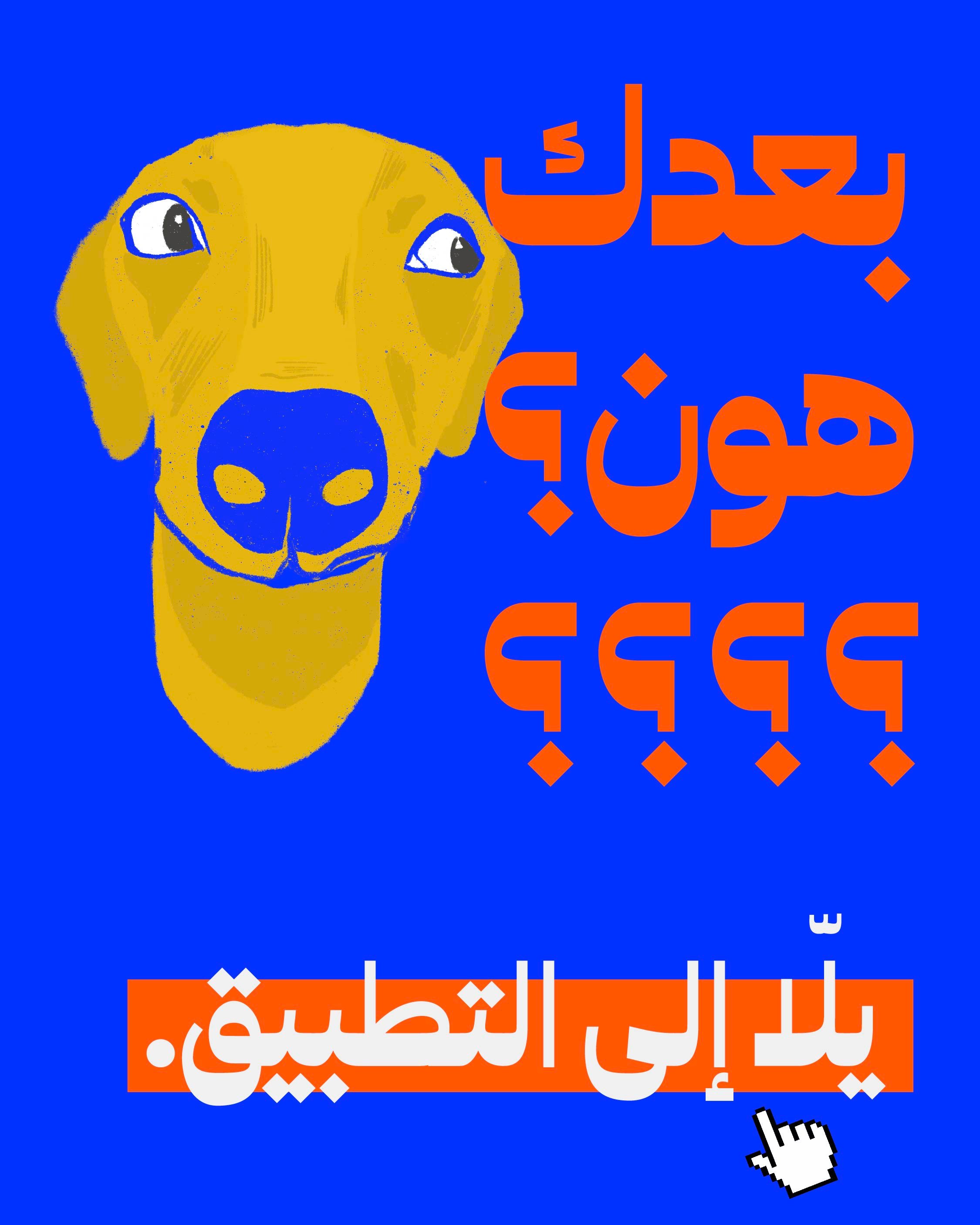My first day of high school in USA, after moving from Lebanon, the administrator asked me to fill out a form and identify myself as either Asian, Black, Hispanic, Native American or White Caucasian.
I thought: Well, I have no idea what Caucasian is, and Hispanic sounds like it has something to do with Spanish, and I’m not Black or Native American.
I checked “Asian.”
Lebanon after all is in Asia.
“You’re not Asian!” the administrator barked at me in a Texan drawl. She then promptly crossed out Asian and checked the box for “White Caucasian.”
White Caucasian? The first thing I did when I got home was look up what it meant. Caucasian is defined as a person of European, North African or West Asian ancestry, so, I guess that's what I was -- until 9/11. Years later, it would dawn on me that I had escaped the sectarian divisions of one country only to be welcomed to the racial classifications in another.
“White” was just a word to check on applications. I had no other association with it.
When hearing my accent, students asked, “Where’re you from?” Lebanon, I would say proudly, but the next question was always, “How come you have blue eyes?”
The question always threw me. I didn’t know how to respond. I felt I was infringing on something I had no right to have. And, that exchange was with the more informed students.
The ones clueless about geography, inevitably would ask, “Lebanon? Where’s that?”
I never said Lebanon was in the Middle East. It’s an unnatural term to me. I already had developed so many negative connotations to it. To me, Lebanon, geographically, historically and culturally, was always connected to the Mediterranean. Yet, in America, people from the Eastern Mediterranean were not expected to identify as Mediterranean. That was reserved only for the Greeks, Italians and Spaniards, i.e. Europeans!
In America, people from the Eastern Mediterranean are not expected to identify as Mediterranean. That was reserved for the Greeks, Italians and Spaniards, i.e. Europeans!
I remember as a child my mother commenting while watching Dynasty that the actor Geoffrey Scott looked like the “son of Arabs.” She didn’t say he looked Middle Eastern because Arabs don’t identify themselves in their various vernaculars as “Middle Eastern.” It sounds absurd in Arabic.
Yet after 9/11, I was supposed to abandon my “White Caucasian” classification and all its privileges and identify with this other foreign term, “Middle Eastern.”
As I spoke to Arabs, Armenians, Kurds, Iranians and Turks, I came to discover that most rejected the “Middle Eastern” label too. This rejection was seen on the streets of the Arab world in 2006 when the U.S. Secretary of State, Condoleezza Rice described the Israeli war on Lebanon as the “birth pangs of a new Middle East,” words which harkened back to Sykes-Picot and to the arbitrary borders that were put up by the West in a region that had been borderless since time immemorial. “Middle East” stood for being robbed of one’s self-determination and self-identification.
The “Middle East,” a term invented by British colonialists and popularized by the American army, is not a geographical region per se, such as South Asia or Eastern Europe. The countries included in this geopolitical, made-up region vary. Western powers decide -- without us -- which countries are part of the Middle East and which aren’t. Under the Bush administration, it was expanded, as if by a magic wand, to also include countries in Central Asia and Pakistan, a country that is actually in South Asia.
As a native of Lebanon and coming from the Levant, a region often called by historians the cradle of civilization and the birthplace of the Abrahamic religions, and with cities several thousands years old, why am I expected to identify with a euro-centric, colonialist and imperialist term less than 100 years old?
A native of Lebanon, a region known as the cradle of civilization and the birthplace of Abrahamic religions, with cities thousands of years old, why am I expected to identify with a euro-centric, colonialist and imperialist term less than 100 years old?
In rejecting the label “Middle East,” I am not advocating to replace the term with White or Caucasian.
The first American immigrants from the Ottoman Empire were Lebanese and Syrians. Upon their arrival at Ellis Island, immigration inspectors determined their race based on their appearance, in the same way my school administrator did me. For the most part, Syrians and Lebanese looked like other Mediterranean people coming to America, who were classified as White. This classification was important because without it they would not have been granted citizenship.
Take George Dow.
In 1914, Dow, a Syrian immigrant, arrived in Ellis Island, excited about the American promise. But, he must’ve had olive skin darker than the average Levantine because he was classified as non-white, a disastrous classification that would bar him from becoming a U.S. citizen. The Syrians and Lebanese were not alone. The “whiteness” of Italian, Greek, and even Slavic immigrants was also questioned at the turn of the century.
In 1914, Dow, a Syrian immigrant, arrived in Ellis Island, excited about the American promise. His skin must have been darker than the average Levantine, he was classified non-white, a disaster that would bar him from becoming a U.S. citizen.
The Syrian American Association, however, appealed the decision and sued the U.S. government using Jesus in its defense. They argued that if Syrians were not White, then Jesus, who was born in the Levant where Syria is, was not White either. Because no judge in 1915 was ready to declare Jesus non-White, Dow won his case, living in the U.S. as a free, White man.
Since Dow’s case, White America, for the most part, has welcomed into its club of privilege immigrants from Lebanon, Palestine and Syria. For example, the Lebanese-American actor Danny Thomas in the 1950s played the husband of Jean Hagen, who was Dutch. Both actors were considered White and their onscreen relationship was not considered interracial, which would have run afoul of miscegenation laws still in place in many states.
Decades later, another Lebanese-American actor Tony Shalhoub was able to play characters of European descent on TV while Egyptian-American Ramy Youssef, with a similar complexion, is not able to do the same.
Why?
Perhaps because Tony Shalhoub, who came to prominence before 9/11, is Christan while Ramy Youssef, who rose to fame after 9/11, is Muslim.
After 9/11 when more immigrants arriving from Asia and North Africa tend to be dark-complexioned and Muslim, inclusion into the club of White Privilege was questioned again.
Today, many Americans of Arab, Armenian, Assyrian, Circassian, Iranian, Kurdish, Syriac and Turkish descent often find themselves unsure which race box to check. Coming from the original melting pot of the world, we are not accustomed to identifying ourselves by our skin color.
While at the University of North Texas, two of my friends were African-American and Sudanese. One day, my African-American friend complained that our Sudanese friend was denying his blackness because he identified as Arab and not Black. It was difficult for an American, especially a Black man judged by the color of his skin, to understand why another African would identify with an identity other than race.
Like my Sudanese friend, we often find ourselves forced to choose between White, Black and Asian classifications that don't fully reflect our cultural identities.
Where does this leave us?
Well, it certainly isn’t “Middle Eastern” or the color “brown” because some of us are black in Luxor and Khartoum while some are blond or blue-eyed in Aleppo and Beirut.
More and more people are identifying with terms that reflect actual geographic regions like North Africa or West Asia. While North Africa has become more common, West Asia hasn’t.
The reason?
“It is too confusing,” a white colleague told me. “How can Asia be west when that’s where Europe is?”
I’ll blame her ignorance on the fact geography is not taught in Texas schools.
People of European descent have monopolized the word “West” and all the positive connotations that come with it. It’s another form of White Privilege. This is why we often see “South'' added to “West Asia,” which is also unacceptable.
The word “South” is another geopolitical term, often used to identify lower-income, underdeveloped countries and has a negative connotation. It is important to use “West Asia” and not Southwest Asia, if we want to be inclusive. Morocco is as West as Spain is, and Armenia, Turkey and Syria are as north as parts of France and Italy are. If we want to include a vast region that stretches from Iran to Morocco and from Armenia to Sudan , West Asia - North Africa (WANA) is the best option.
We should all reject the term “Middle East '' once and for all.
But we shouldn’t stop there!
If we are to call ourselves West Asian-Americans and North African-Americans, we should also advocate for the cessation of the use of the word “White,” the crown jewel of systemic racism in America.
“Whites” should also get a hyphen and be classified as European-Americans, just like African-Americans, Asian-Americans, Latin-Americans and Native-Americans.
By getting rid of the term “White,” everyone becomes hyphenated.
It is only fair!
It’s high time to reverse the privilege and have Whites be identified by how we see them, descendants of European immigrants.
(Louay Khraish is a proud Lebanese, Levantine, Mediterranean, West Asian, and American, but certainly not Middle Eastern)
رصيف22 منظمة غير ربحية. الأموال التي نجمعها من ناس رصيف، والتمويل المؤسسي، يذهبان مباشرةً إلى دعم عملنا الصحافي. نحن لا نحصل على تمويل من الشركات الكبرى، أو تمويل سياسي، ولا ننشر محتوى مدفوعاً.
لدعم صحافتنا المعنية بالشأن العام أولاً، ولتبقى صفحاتنا متاحةً لكل القرّاء، انقر هنا.


